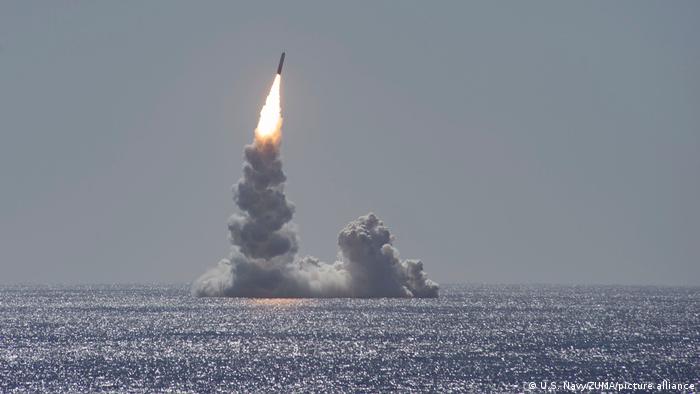
Amidst news of fighting in Ukraine, refugees at the country's western borders and Russian attacks on Kyiv, Russian President Vladimir Putin made a statement on Sunday that stood out, one that sent a chill around the world.
"I order the defense minister and the chief of the general staff of the Russian armed forces to put the deterrence forces of the Russian army into a special mode of combat service," Putin said in a televised address.
The "deterrence" the president referred to includes nuclear forces, which immediately raised concerns about a possible escalation of the war against Ukraine.
A senior US Defense Department official said in a briefing on Sunday that Putin invoking Russia's nuclear capability was "not only an unnecessary step for him to take but an escalatory one." And NATO Secretary-General Jens Stoltenberg called the order "irresponsible," telling US broadcaster CNN that "this is dangerous rhetoric."
But there's no clear understanding of what exactly the statement means in practical terms for Russia's military strategy going forward.
"It is still unclear what the increased alert involves," Hans Kristensen, director of the nuclear information project at the Federation of American Scientists, wrote in an email to DW.
"There have been speculations that it might involve increasing the readiness of the nuclear command and control system to be more ready to transmit a launch order. There have also been some reports of increased activity of the missile submarines, but it is unclear if that is beyond the normal."
'Unacceptable' statements about NATO-Russia clashes
The Kremlin has said that putting nuclear forces on higher alert was a step taken in reaction to statements from the West regarding possible confrontations between Russian and NATO troops.
"Statements were made by various representatives at various levels on possible altercations or even collisions and clashes between NATO and Russia," Kremlin spokesman Dmitry Peskov said in a press briefing on Monday. "We believe that such statements are absolutely unacceptable."
It is unclear to which statements Peskov was referring. One Western politician he mentioned directly was British foreign minister Liz Truss. But neither Truss nor other Western or NATO representatives have talked about NATO attacking Russian troops.
Experts assume that Putin made his contentious statements as a reminder to the world that Russia is a nuclear power that is not to be trifled with after the EU and the US imposed the harshest economic sanctions on Russia that the country has ever seen.
"Putin is likely doing this to scare the West into giving him concessions," Kristensen wrote. "This is his typical brinkmanship."
The move could also be motivated by a lack of success in the war so far, says Marc Finaud, head of the arms proliferation division at the Geneva Centre for Security Policy, an international foundation based in Switzerland.
"The military situation in Ukraine is not as clear as Putin imagined it would be," Finaud told DW. "That could be why Russia's president felt the need to point to his country's nuclear arms strength."